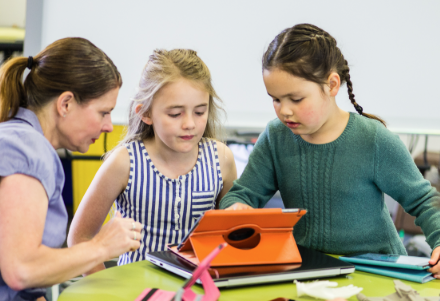Self-awareness is the ability to understand your own thoughts, emotions, strengths, and challenges. In education, developing self-awareness empowers students to reflect on their learning habits, set meaningful goals, and build better relationships with others. As high schools emphasize the importance of social-emotional learning, many programs are incorporating strategies to help students better understand themselves and how they learn.
Learning naturally creates opportunities for self-reflection. When students take time to evaluate what strategies help them focus, how they respond to setbacks, and where they excel, they become more intentional learners. For example, a student who notices they do better with visual aids or collaborative work can begin to adapt their study habits to match their personal strengths. This process builds self-awareness and promotes more effective learning. Additionally, identifying weak points—such as procrastination or test anxiety—helps students take active steps to overcome them.
Classroom environments that support open dialogue and personal expression help students build emotional intelligence. When students are encouraged to share their thoughts, ask questions, and reflect on their progress, they begin to recognize patterns in their behavior. Teachers can guide this reflection by incorporating activities such as journaling, goal-setting exercises, and class discussions that prompt students to think critically about their experiences. Group check-ins, peer feedback sessions, and reflective prompts at the end of lessons all contribute to this awareness.
Feedback is another powerful tool for self-awareness. Constructive comments from teachers, peers, and mentors help students understand how their work is perceived and where they can improve. When students learn to accept feedback without discouragement and use it to grow, they develop a stronger sense of self and become more resilient. This process teaches students how to separate their identity from criticism, leading to healthier self-esteem and a willingness to embrace challenges.
Self-awareness is also linked to decision-making and goal-setting. Students who understand what motivates them are more likely to choose courses, activities, and study methods that align with their values and aspirations. This alignment leads to greater satisfaction and better long-term outcomes. Reflection tools such as learning portfolios, academic journals, and personal check-ins provide ongoing opportunities for students to monitor their growth. These tools encourage students to track progress over time and recognize the connections between effort and improvement.
Extracurricular activities and group projects further support self-awareness by exposing students to teamwork, leadership, and real-world problem-solving. These settings challenge students to consider their roles, strengths, and impact within a group, and to reflect on how they contribute to shared goals. Whether leading a club, participating in sports, or volunteering, students learn how their actions influence others. They also discover how different environments affect their energy levels, interests, and confidence.
Technology can also aid in developing self-awareness. Learning platforms that track student progress, highlight areas for improvement, and offer adaptive feedback help students better understand their performance. Apps focused on mindfulness, time management, or academic tracking can reinforce habits of self-reflection and growth. For example, time logs can reveal patterns of procrastination, while mood journals can help students connect emotional states with learning productivity.
Guidance counselors and school wellness programs play an essential role in helping students develop self-awareness. One-on-one counseling sessions, group workshops, and personality assessments provide safe spaces for students to explore their goals, interests, and concerns. Activities such as career exploration inventories, learning style questionnaires, and emotional check-ins support students in making informed choices and building self-knowledge.
Parental involvement also strengthens this process. Families who engage in open conversations about challenges, values, and strengths encourage young people to reflect more honestly on their experiences. Parents who model self-awareness by acknowledging their own learning curves and emotions create a home culture that supports continuous growth.
Ultimately, self-awareness through learning equips students with the insight and confidence needed to succeed both academically and personally. By encouraging reflection, recognizing patterns, and setting purposeful goals, schools help students build a foundation of lifelong learning and self-directed growth. As students become more aware of themselves, they are better prepared to adapt, lead, and thrive in any environment. They also develop greater empathy for others, leading to more respectful relationships and inclusive school communities. In an increasingly complex and interconnected world, self-awareness is not just a personal strength—it is a key to responsible citizenship and purposeful living.


